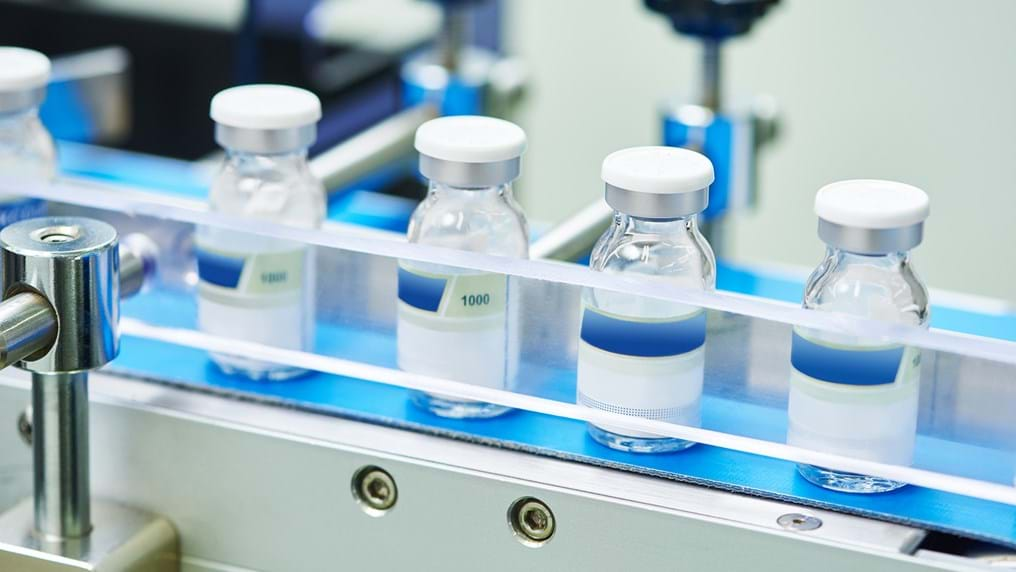IChemE team responds to address COVID-19 drug bottlenecks

17th June 2020
Members of the Institution of Chemical Engineers (IChemE)’s COVID-19 Response Team have offered assistance to increase the availability of drugs that can help treat the disease and make it less deadly. With preventative vaccines not expected to be widely available before 2021, small molecule drugs are needed to treat the disease in the meantime.
The pandemic has prompted a global effort to repurpose existing approved drugs to treat the disease. Identifying these life-saving drugs is only part of the process; the other is ensuring the drugs are available in the quantities required. IChemE’s COVID-19 Response Team, in partnership with the International Society for Pharmaceutical Engineering UK Affiliate (ISPE UK), has been working to support the establishment of a robust supply chain that can produce the required dosages.
Many of the companies who develop or hold licences for these medicines do not have their own manufacturing facilities and outsource production to contract manufacturers. Given the current demand for contract manufacturing, capacity is limited, and pharmaceutical companies are struggling to ramp up production. Recognising this major obstacle in the supply chain, the IChemE team sought to identify spare capacity in manufacturing facilities.
Many small molecule medicines, or their intermediates, are produced in Asia. With an already pressurised supply chain being exacerbated by the current pandemic, companies with already-approved drugs have asked industry for help.
This was the case with Gilead, the developer of remdesivir (an anti-viral drug that has already been approved in North America, Europe and Japan to treat the disease), whose CEO published an open letter asking for help with manufacturing to meet demand. The IChemE team responded rapidly, identifying manufacturing partners who had capacity in the relevant production methods, quickly facilitating the connection. By linking pharmaceutical companies with the spare manufacturing capacity, the team hope to help industry ramp up production of these vital drugs.
It is hoped that widespread use of these medicines will bring the lethality of the disease down to manageable levels and reduce the impact on the health care system. A shorter treatment course is beneficial for many reasons; patients can be discharged from hospital earlier; families can be reunited, and healthcare resources are freed up.
Keith Plumb, IChemE Trustee and member of the IChemE COVID-19 Response Team, said:
“Even when vaccines are available, it is going to take a significant amount of time to ramp up production to the amounts required, as to be successful the whole population will need to receive the vaccine. Small molecule medicines can potentially make the disease much less lethal, and because we only need to treat infected patients, we need much smaller quantities.
“This means it is much easier to produce the quantities needed in the short term, and treatments can be administered to patients within months of linking up the drug companies and the manufacturers.”
This project is one of a number being carried out by the IChemE COVID-19 team which consists of over 70 volunteers from across the Institution’s membership with expertise in pharmaceutical process scale-up, design and manufacturing, project management, facilities build and antibody therapeutics. The team is focussing on a number of specific workstreams reflecting areas of chemical engineering expertise in the manufacture of small molecule and biological medicines as well as extending to cover diagnostics and hospital service requirements including medical gases and personal protective equipment (PPE).
To ensure a resilient pharmaceutical manufacturing industry is in place for the future, IChemE has been working with industry stakeholders across its global network developing recommendations and advice for governmental bodies and industry associations.
If your company would like visibility of spare capacity in the small molecules supply chain, please contact the IChemE team at covid@icheme.org.
Links
IChemE Coronavirus Information Hub
Contact
Lucy Cook, Communications Manager, IChemE
t: +44 (0) 1788 534454
e: lcook@icheme.org
Rachael Fraser, Communications Executive, IChemE
t: +44 (0) 1788 534435
e: rfraser@icheme.org
Ketna Mistry, Communications Executive, IChemE
t: +44 (0) 1788 534484
e: kmistry@icheme.org
What is chemical engineering?
Chemical, biochemical and process engineering is the application of science, maths and economics in the process of turning raw materials into everyday, and more specialist, products. Professional chemical engineers design, construct and manage process operations all over the world. Oil and gas, pharmaceuticals, food and drink, synthetic fibres and clean drinking water are just some of the products where chemical engineering plays a central role.
IChemE
The Institution of Chemical Engineers (IChemE) advances chemical engineering's contribution worldwide for the benefit of society. We support the development of chemical engineering professionals and provide connections to a powerful network of around 35,000 members in 100 countries.
We support our members in applying their expertise and experience to make an influential contribution to solving major global challenges, and are the only organisation to award Chartered Chemical Engineer status and Professional Process Safety Engineer registration.
More information: www.icheme.org